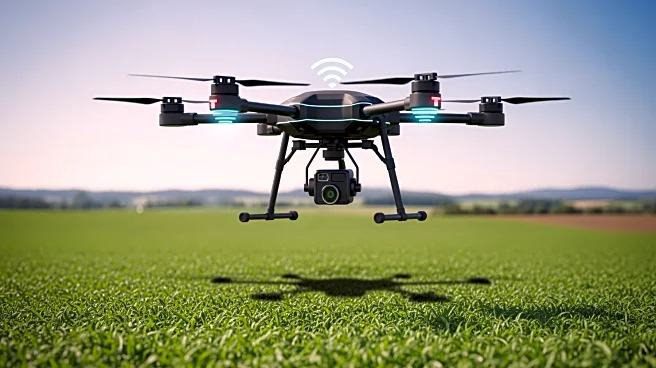What's Happening?
Agriculture is undergoing a technological revolution, driven by data, automation, and artificial intelligence. Innovations such as precision agriculture, robotics, and AI are reshaping farming practices, enabling more efficient and sustainable food production.
Precision agriculture uses data-driven decisions to optimize resource use, while robotics and automation address labor shortages and enhance efficiency. AI and predictive analytics offer insights for better crop management and yield forecasting. Controlled environment agriculture, including vertical farming, is emerging as a solution to urban food production challenges, reducing water use and dependency on weather.
Why It's Important?
These technological advancements are crucial as global food demand is expected to rise significantly by 2050. By improving efficiency and sustainability, agriculture technology can help meet this demand while minimizing environmental impact. The integration of AI and automation in farming practices enhances productivity and safety, offering solutions to labor shortages and resource management. As urban populations grow, innovations like vertical farming bring agriculture closer to cities, reducing transportation costs and ensuring fresh produce availability. These developments are essential for maintaining food security and environmental health.
What's Next?
The future of agriculture technology will likely see further integration of AI, IoT, and ERP systems, creating a fully connected and automated ecosystem. Challenges such as high initial costs, digital literacy, and connectivity gaps need to be addressed to facilitate widespread adoption. Collaboration among governments, technology providers, and financial institutions will be key to overcoming these barriers. As agriculture technology continues to evolve, it will play a pivotal role in shaping the global food economy, with those embracing these advancements leading the way.
















